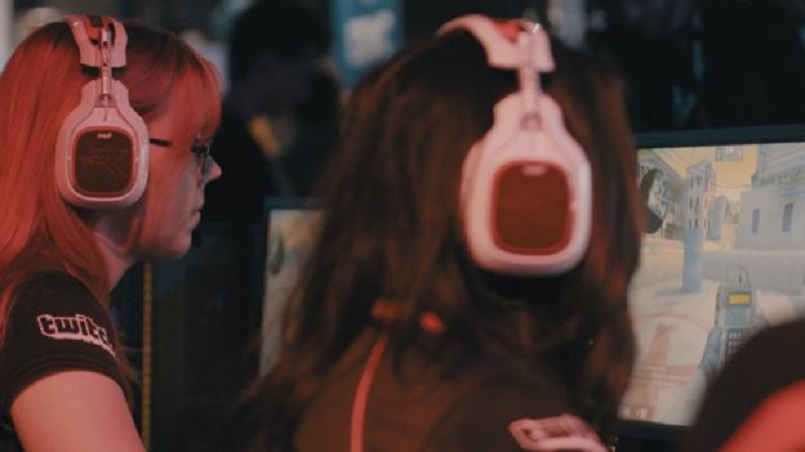
Very few women enter the world of professional gaming, and those that do often face harassment and a huge gender pay gap.
Two of the top female gamers talk to the BBC about how they are fighting discrimination and encouraging other women to play.
On Monday the e-sports industry awards take place in London to applaud the top players in the business but not one female player has been nominated.
Competitive gaming, also known as Electronic Sports or e-sports, is growing at an incredible pace. In 2016, revenues from e-sports are predicted by professional services firm Deloitte to rise by 25% to $500m (£406m). Its regular global audience will likely top 150 million people.
Unlike in traditional sport, physical advantages in e-sports are non-existent yet the most popular games are still overwhelmingly played by men.
Recent research by the Pew Center shows men and women are equally likely to say they play video games but men are twice as likely to consider themselves "gamers". It is when gaming becomes competitive that the number of women playing drops dramatically.
Steph Harvey is one of the most successful gamers in the world. She says that the number of women in e-sports is as low as 5% and the main reason is the stereotype attached to gamers.
"It's still a 'boy's club' so as a woman you're automatically judged for being different," she says.
Online abuse has been prevalent in the gaming community for years and even led to a misogynistic hate campaign.
Steph has even received online rape threats in the past: "The way I get harassed is about what they would do to my body, about why I don't deserve to be there because I use my sexuality - it's all extremely graphic."
She has begun to feel despondent about the work she does for the gaming community and says she often thinks, "Why do I do this if my community hate me? Because I am a feminist, because I believe women have a place in gaming."
Julia Kiran is the leader of Team Secret, which in October became the top female team in the world. She thinks this reflects a common attitude: "It's always felt that female teams are not a real scene. Male players see us as a side game that doesn't count."
One of the solutions has been the creation of female teams and female-only tournaments.
For Steph, this was her way into e-sports: "I'm... proof that it helps because I saw women compete and thought I want to win this world cup. It's so much stronger to be inspired by someone you can relate to."
But female tournaments are not without controversy. Many players, including Julia, believe they reinforce gender divides.
"It would be cool to see something that male and females are working together on," she says.
Female tournaments have led to a big disparity in earnings between male and female players.
The earnings for the top male player in e-sports amounts to over $2,500,000 while the top female earnings are less than $200,000. Ultimately, there is less money to be made from female teams, leading to fewer sponsors, and reduced coverage.
Steph hopes that big companies support female tournaments and female players, "because in the end you need money to compete but ultimately the goal is that these female tournaments don't exist anymore, because there's no need for it".
An equal playing field
Twitch, the gaming streaming site owned by Amazon, is now working to tackle abuse on the site, and Steph has created her own solution. Misscliks is an organisation and stream which promotes female role models in the gaming world.
The rarity of female gamers turning professional is also connected, Steph believes, to the history of games development which has seen the creation of games dominated by men and so despite e-sports not being physical "they focus on spacial awareness and reflexes, skills often stronger for men," Steph says.
She wants to see more female developers creating the games, which will reflect women and inspiring more women to play: "We'll see mainstream gamers becoming more diverse and if I can inspire one person then it would have been worth it."
